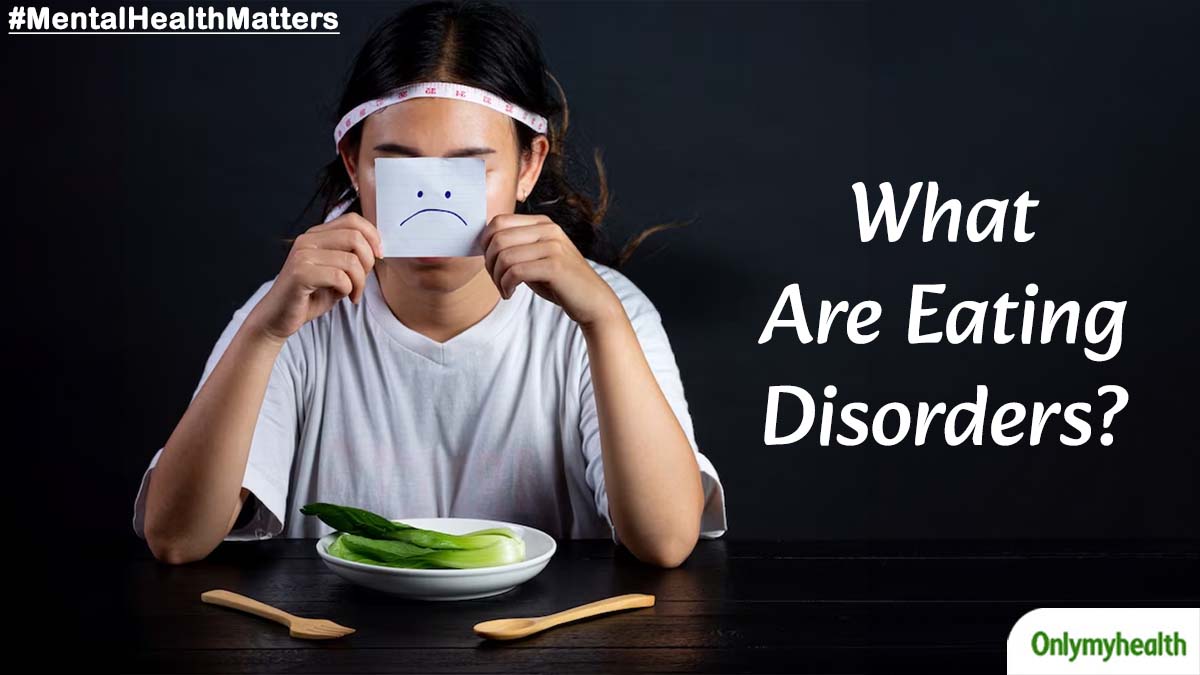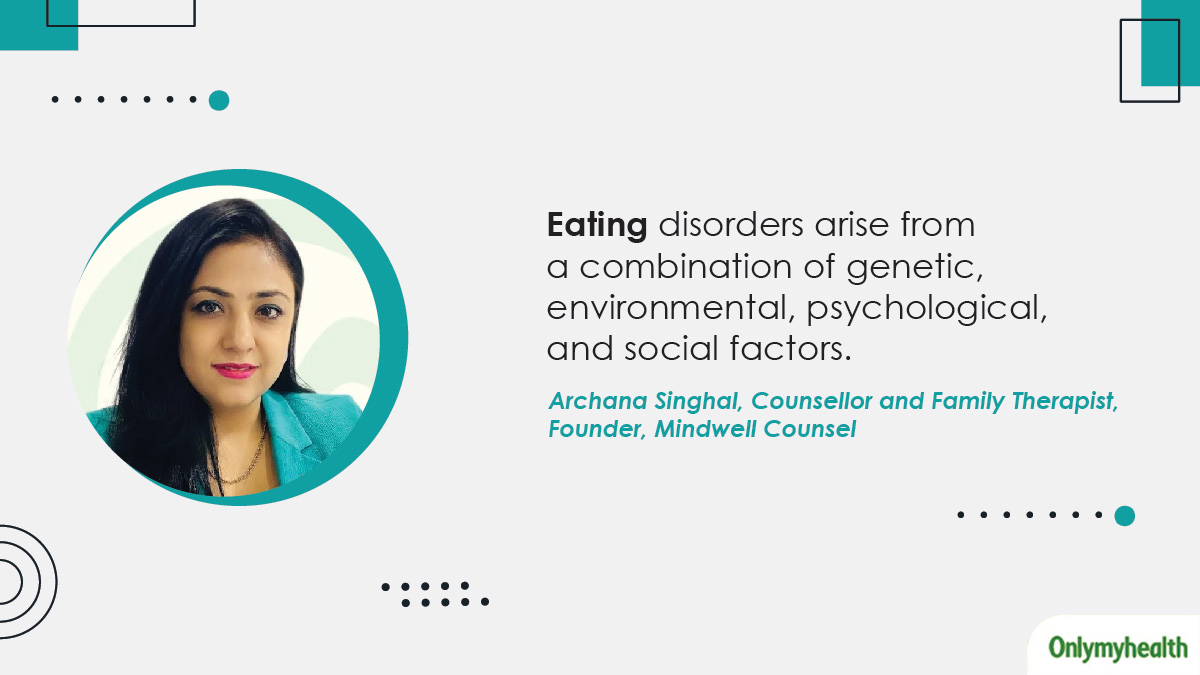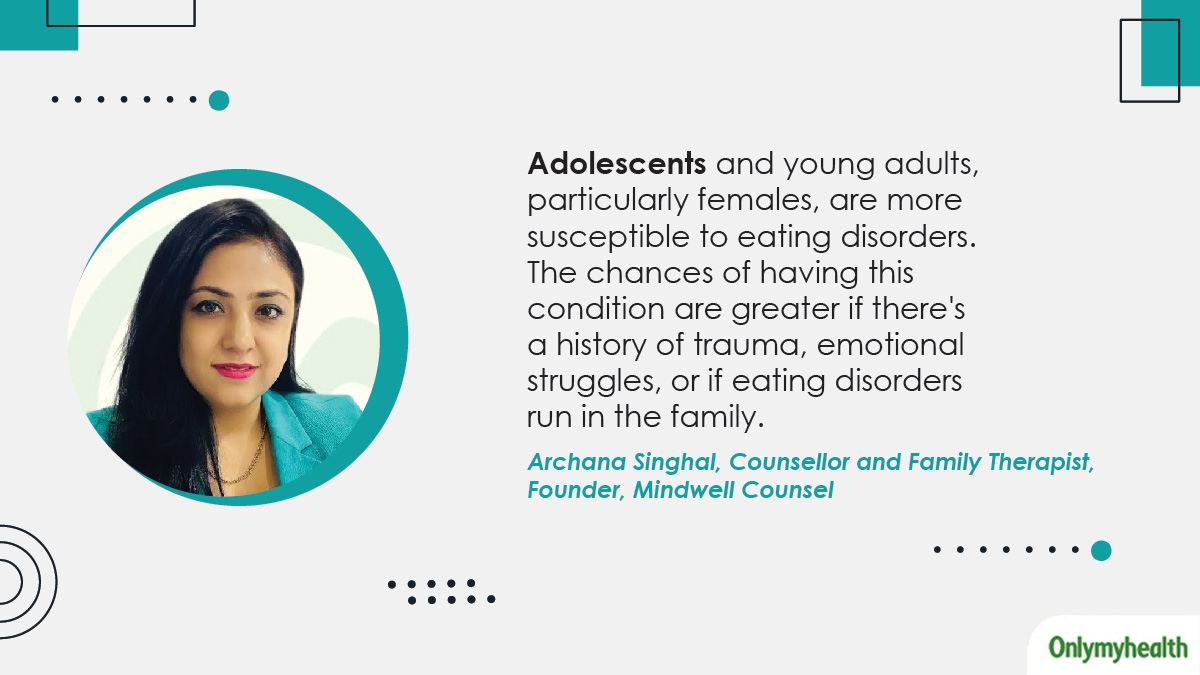

Eating disorders are about more than just food problems. They severely affect both your body and mind. These disorders mess with how you think about food, weight, body shape, and how you eat. They can develop in individuals of any age and gender, regardless of their body weight, shape, or size.
This week in our ‘Mental Health Matters’ series, we spoke to Archana Singhal, Counselor and Family Therapist, Founder, Mindwell Counsel, and Member of the Counsellors Council of India and WICCI NPWC, who explained about eating disorders.
What Are Eating Disorders

Singhal said, “Eating disorders are serious mental health conditions that affect a person’s relationship with food, eating habits, body image, and overall well-being. They include a range of behaviours and thoughts related to food and the body that can have harmful physical and emotional effects.” According to the American Psychiatric Association, eating disorders impact around 5% of the population and tend to emerge most frequently during the adolescent and young adult phases of life.
Types of Eating Disorders
.jpg)
There are many kinds of eating disorders, each with its special traits. The most common ones include:
Anorexia Nervosa
People who have anorexia nervosa are really scared of getting heavier and they see their body in a way that’s not true. They severely restrict their food intake, often leading to extreme weight loss. People with this disorder might think they are overweight, even when they’re underweight.
Bulimia Nervosa
Bulimia nervosa involves consuming a large amount of food and then attempting to compensate for the extra calories. This comprises behaviours, such as induced vomiting, improper use of laxatives, or rigorous workout. These symptoms can be quite distressing, and managing them can be challenging.
Binge Eating Disorder
Binge eating disorder is characterised by recurrent episodes of consuming large amounts of food in a short period, accompanied by feelings of guilt, shame, and loss of control. Unlike bulimia, individuals with binge eating disorders do not engage in compensatory behaviours.
Avoidant/Restrictive Food Intake Disorder (ARFID)
ARFID involves avoiding certain foods or food groups due to sensory sensitivities, fear of choking, or other factors unrelated to body image. This disorder can lead to nutritional deficiencies and inadequate calorie intake.
Also Read: Detox Diet After Binge Eating? Expert Explains If It Really Works
Symptoms Of Eating Disorders

Anorexia Nervosa
- Significant weight loss
- Intense fear of weight gain
- Distorted body image
- Restricted food intake
- Excessive exercise
- Social withdrawal
Bulimia Nervosa
- Binge eating
- Compensatory behaviours (vomiting, fasting, exercise)
- Preoccupation with body image
- Secretive eating
- Fluctuations in weight
- Physical consequences
Binge Eating Disorder
- Binge eating
- Loss of control
- Emotional distress
- Rapid eating
- Overweight or obesity
- Negative body image
Causes Of Eating Disorders

Singhal said, “Eating disorders arise from a combination of genetic, environmental, psychological, and social factors.” Some of the common causes include:
- Genetics: Family history of eating disorders or mental health conditions
- Psychological Factors: Low self-esteem, perfectionism, body dissatisfaction, and impulsivity
- Social Pressures: Societal emphasis on thinness, cultural norms, and peer influences
- Traumatic Experiences: Past trauma, abuse, or bullying
- Biological Factors: Hormonal changes, brain chemistry imbalances, and neurotransmitter abnormalities
Risk Factors Of Eating Disorders

Singhal informed, “Adolescents and young adults, particularly females, are more susceptible. The chances of having this condition are greater if there’s a history of trauma, emotional struggles, or if eating disorders run in the family. Participation in activities that prioritise weight or appearance, such as modelling or competitive sports, can also increase vulnerability.”
Also Read: I Loved Food But Feared Weight Gain: Content Creator Neelakshi Singh On Her Struggles With Eating Disorder
Impact on Physical and Mental Health

Physical complications
- Malnutrition and nutrient deficiencies
- Electrolyte imbalances lead to heart problems
- Digestive issues, including constipation or gastric disturbances
- Dental problems due to vomiting or poor nutrition
Mental health complications
- Anxiety, depression, and other mood disorders
- Social isolation and strained relationships
- Distorted body image leads to low self-esteem
- Impaired cognitive functioning and concentration
Managing Eating Disorders
Singhal listed measures to follow when dealing with eating disorders as follows:
- Multidisciplinary Approach: Involves medical professionals, therapists, and nutritionists.
- Therapy: Cognitive-behavioural therapy helps address psychological triggers and develop healthier thought patterns.
- Nutritional Counselling: Registered dietitians help individuals develop a healthy relationship with food and create balanced meal plans.
- Medications: Prescribed to manage associated conditions like depression or anxiety.
Precautions
Singhal said, “Promoting a healthy relationship with food and body image is crucial in prevention. Encouraging open conversations about self-esteem, body diversity, and media influence can empower individuals. Educating parents, educators, and healthcare providers about early signs is essential for early intervention.”
Bottomline
Singhal concluded, “Eating disorders pose significant health risks, including malnutrition, electrolyte imbalances, and heart complications. Seeking help promptly is crucial for recovery. Remember, recovery is possible with the right resources and dedication to healing both the mind and body.”
[Disclaimer: The information provided in this article is by a registered healthcare professional. However, we advise you to consult your professional if you are dealing with any mental health issues.]



































